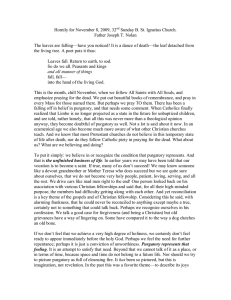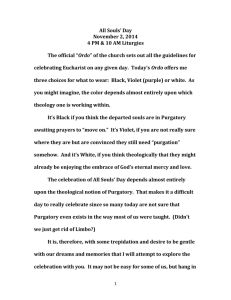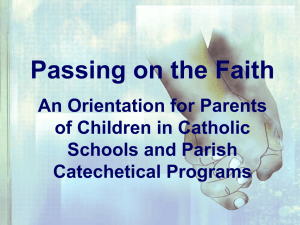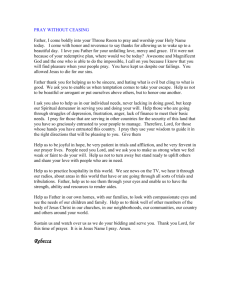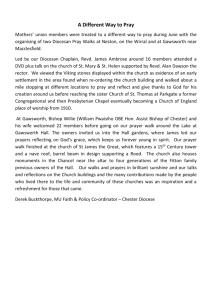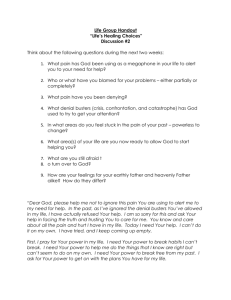Why Do Catholics Pray for the Dead? On November 2nd, All Souls
advertisement
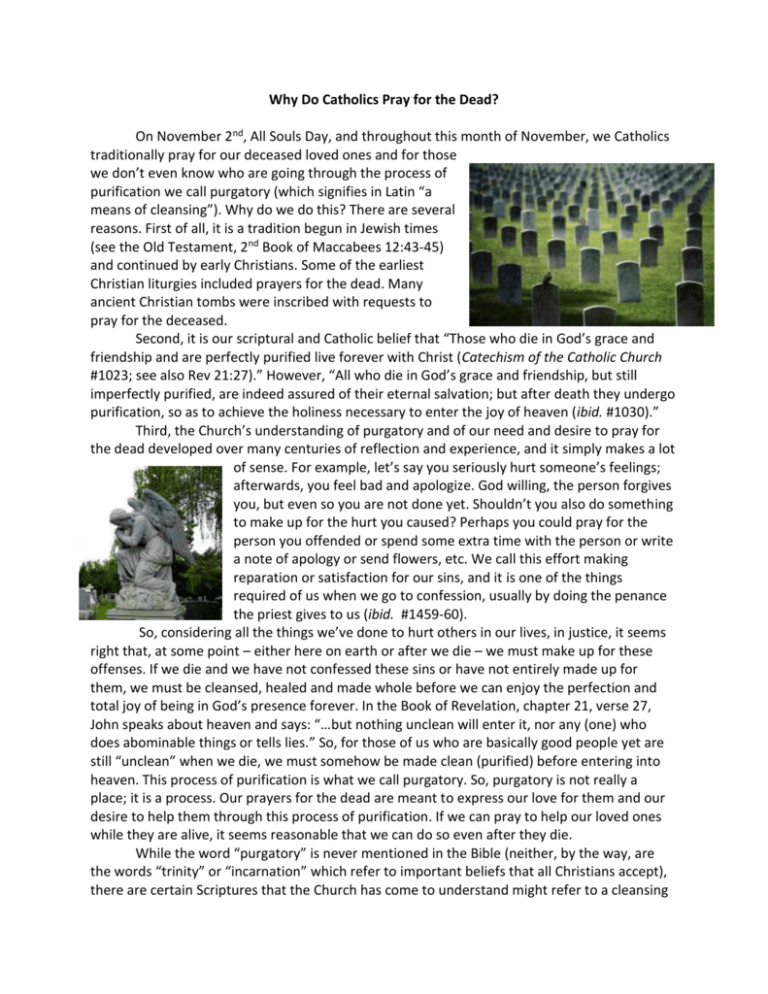
Why Do Catholics Pray for the Dead? On November 2nd, All Souls Day, and throughout this month of November, we Catholics traditionally pray for our deceased loved ones and for those we don’t even know who are going through the process of purification we call purgatory (which signifies in Latin “a means of cleansing”). Why do we do this? There are several reasons. First of all, it is a tradition begun in Jewish times (see the Old Testament, 2nd Book of Maccabees 12:43-45) and continued by early Christians. Some of the earliest Christian liturgies included prayers for the dead. Many ancient Christian tombs were inscribed with requests to pray for the deceased. Second, it is our scriptural and Catholic belief that “Those who die in God’s grace and friendship and are perfectly purified live forever with Christ (Catechism of the Catholic Church #1023; see also Rev 21:27).” However, “All who die in God’s grace and friendship, but still imperfectly purified, are indeed assured of their eternal salvation; but after death they undergo purification, so as to achieve the holiness necessary to enter the joy of heaven (ibid. #1030).” Third, the Church’s understanding of purgatory and of our need and desire to pray for the dead developed over many centuries of reflection and experience, and it simply makes a lot of sense. For example, let’s say you seriously hurt someone’s feelings; afterwards, you feel bad and apologize. God willing, the person forgives you, but even so you are not done yet. Shouldn’t you also do something to make up for the hurt you caused? Perhaps you could pray for the person you offended or spend some extra time with the person or write a note of apology or send flowers, etc. We call this effort making reparation or satisfaction for our sins, and it is one of the things required of us when we go to confession, usually by doing the penance the priest gives to us (ibid. #1459-60). So, considering all the things we’ve done to hurt others in our lives, in justice, it seems right that, at some point – either here on earth or after we die – we must make up for these offenses. If we die and we have not confessed these sins or have not entirely made up for them, we must be cleansed, healed and made whole before we can enjoy the perfection and total joy of being in God’s presence forever. In the Book of Revelation, chapter 21, verse 27, John speaks about heaven and says: “…but nothing unclean will enter it, nor any (one) who does abominable things or tells lies.” So, for those of us who are basically good people yet are still “unclean” when we die, we must somehow be made clean (purified) before entering into heaven. This process of purification is what we call purgatory. So, purgatory is not really a place; it is a process. Our prayers for the dead are meant to express our love for them and our desire to help them through this process of purification. If we can pray to help our loved ones while they are alive, it seems reasonable that we can do so even after they die. While the word “purgatory” is never mentioned in the Bible (neither, by the way, are the words “trinity” or “incarnation” which refer to important beliefs that all Christians accept), there are certain Scriptures that the Church has come to understand might refer to a cleansing after death: Mt 5:25-26; 12:32; 18:34; 1Cor 3:15. For more information about the Catholic understanding of purgatory, you can go to the old Catholic Encyclopedia online at http://www.newadvent.org/cathen/12575a.htm.
